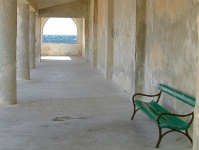 Overview: After more than a decade of civil and ethnic unrest, Croatia is
once again emerging as an attractive tourist destination. With its
magnificent coastline boasting 1,185 islands, islets and reefs; and
countryside scattered with Roman ruins and picturesque medieval
villages, Croatia is fast becoming a rival to the magical Greek
islands in luring lovers of fun, sun, local colour, great food and
history. After centuries of fighting for independence, and being sliced
and diced geographically to suit political and ethnic divisions,
Croatia has ended up arc-shaped. Its long Adriatic coastline forms
the western leg, tapering to the unique ancient seaport of
Dubrovnik in the south, while the land between the rivers Drava and
Sava form the northern section. The capital, Zagreb, sits
in-between. The most prominent feature of Croatia's tourist industry is its
Dalmatian coastline, which is indented with rocky cliffs,
peninsulas and small inlets. Numerous good quality hotels and
marinas have been resurrected or constructed in the past few years,
and the Croatian province is once again beginning to enjoy a
tourist boom reminiscent of its heyday in the 1930s. There is a
special atmosphere to Croatian towns and villages, many of which
are built on the sites of ancient Greek settlements dating from the
4th century BC. This, coupled with a welcoming and determined
population, Mediterranean climate, scenic beauty and lush
vegetation, is aiding Croatia's rise from the ashes of war into one
of the world's best tourist hotspots.
|